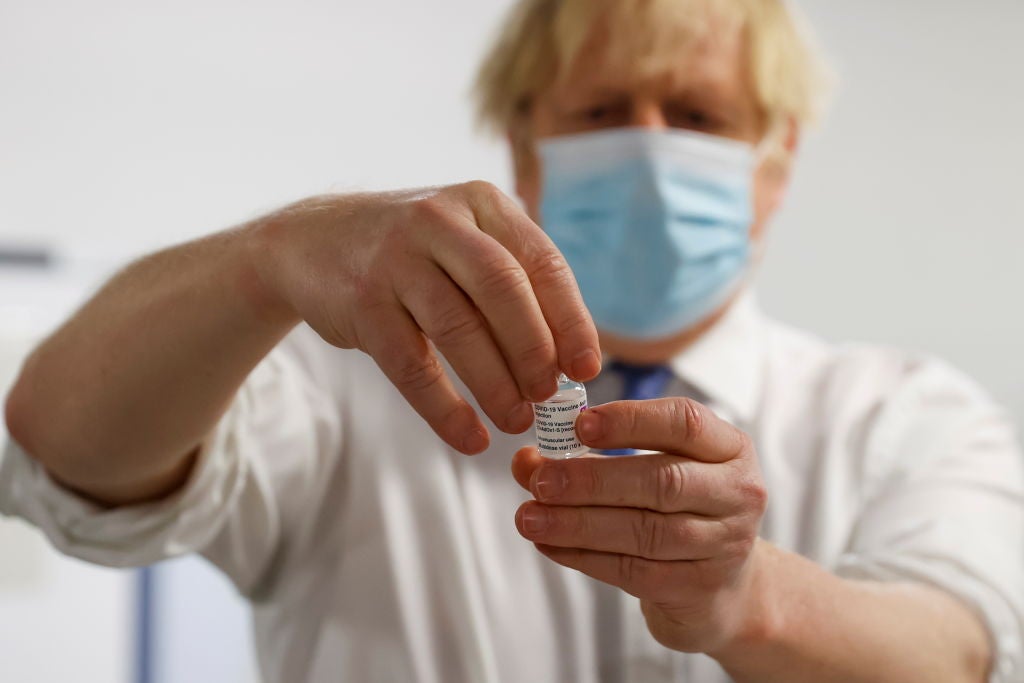The government’s ‘hostile environment’ policy undermines its efforts to protect public health
Everyone in the UK should be vaccinated, without facing repercussions over their immigration status, writes Marley Morris


The government is implementing a “vaccine amnesty” for undocumented migrants, ministers have confirmed this week. And there’s no doubt that this is good news. As health minister Edward Argar has said, the virus is "not worried about immigration status", so neither should we. In order to contain the virus, everyone must be given the opportunity to get their jab.
But since the press broke the story of a “vaccine amnesty”, it’s become clear that this announcement does not actually amount to a change in policy. After all, a regular immigration status is not a requirement for registering with a GP.
Instead, the latest news is really all about messaging: the government wants to emphasise that people without an immigration status who come forward will not fall foul of Home Office rules.
But to truly encourage people to come forward for vaccines and get the virus under control, the government will need a more concerted approach. This means taking on the government’s 'hostile environment' policy– a policy for immigration enforcement that IPPR’s research has shown could jeopardise the UK's efforts to control the spread of the virus.
The hostile environment policy – introduced first by the former Labour government and then accelerated by Theresa May when she was home secretary – aims to prevent people without the correct immigration documents from accessing basic essentials, such as work, housing, welfare, and free public services. It does this by requiring employers, landlords, and frontline workers to administer immigration checks and charges – shifting the responsibility for immigration enforcement away from government and on to ordinary citizens.
Our research found that even in normal times the hostile environment can have disastrous consequences – most shockingly, when it mistakenly affected people from the Windrush generation who had lived in the UK for decades.
But in the middle of a pandemic, the impacts can be particularly severe. By preventing people from working, renting or accessing benefits, these measures risk forcing people into substandard and overcrowded housing, finding informal employment in unregulated workspaces, and breaching self-isolation rules to maintain their livelihoods. This has clear implications for the spread of Covid-19.
There is also considerable evidence that the current system of charging and data-sharing in the NHS deters people from seeking medical treatment.
Even though the government has put in place exemptions for treatment of coronavirus, there are still reports of individuals not using the NHS for fear of the Home Office – including the tragic case of a Filipino man named Elvis, who died in his home with suspected coronavirus after avoiding seeking medical treatment.
And while, in principle, undocumented migrants are eligible for free primary care, the charity Doctors of the World has found that many are in practice wrongly refused due to lack of paperwork.
These hostile environment measures have seriously undermined trust in the Home Office’s immigration enforcement system. A single exemption or one-off announcement is unlikely to reverse the scepticism many migrants feel about Home Office decision-making.
This is why we need broader action to address the hostile environment and protect public health during the Coronavirus crisis. Our new report sets out the key priorities for reform, including creating a “firewall” to prevent NHS trusts from sharing migrants' personal data with the Home Office, offering routes to legal status for people in the most vulnerable situations, and suspending the “No Recourse to Public Funds” condition which prevents many migrants from accessing benefits.
It’s clear from this week’s developments that the government is finally waking up to the impacts of the hostile environment on its efforts to tackle the pandemic and that this realisation has forced a changed in approach. But if it wants to ensure a healthy take-up of the vaccine among undocumented migrants, it will need to go even further to ensure that the immigration system serves to rebuild trust and promotes, rather than undermines, its efforts to protect public health.
Marley Morris is IPPR associate director for Immigration, Trade and EU Relations




Join our commenting forum
Join thought-provoking conversations, follow other Independent readers and see their replies
Comments